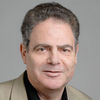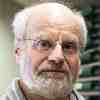Communications of the ACM
Refine your search:
From BLOG@CACM
Will Free Open Access Publication Become a Mass Phenomenon?
In this blog post, I would like to go over the value of different publication platforms from the point of view of an ordinary scientific researcher.
From BLOG@CACM
Bad Reasons to Reject Good Papers, and Vice Versa
(or, am I Reviewer #2? Should I be?)
From BLOG@CACM
Why Is It Hard to Define Data Science?
Data science can be described as a science, as a research paradigm, as a research method, as a discipline, as a workflow, and as a profession.
From BLOG@CACM
The Process-Object Duality in Computer Science and Data Science Education
The process-object duality has several educational implications for the design of teaching and learning processes.
From BLOG@CACM
Three Risks Facing Higher Education
The implications of COVID-19 for risk management in higher education.
From BLOG@CACM
Reflections on the AI Bill of Rights Blueprint
The White House Office of Science and Technology Policy has released a "Blueprint for an AI Bill of Rights." I reflect on this milestone document in the context...
From BLOG@CACM
Four Conversations About Human-Centric AI
I discuss the different conversations, their limits, and what we really need to be talking about.
From BLOG@CACM
Opportunities of Data Science Education
Considering the six new and exciting opportunities that data science presents.
From BLOG@CACM
Which Were the Most Influential Early Computers?
Considering early machines that had the greatest influence on the development of program-controlled computers.
From BLOG@CACM
Mitigating the Base-Rate Neglect Cognitive Bias in Data Science Education
How can machine learning educators help learners cope with the base rate neglect cognitive bias?
From BLOG@CACM
Was Ada Lovelace Actually the First Programmer?
Historical arguments for and against.
From BLOG@CACM
Communing on Computing
Conferences can renew our professional commitment and inspire thought on problems we face.
From BLOG@CACM
The Base-Rate Neglect Cognitive Bias in Data Science
Using Bayes' Theorem, the correct answer to both the medical diagnosis problem and to the lion classification question, can be calculated.
From BLOG@CACM
AI as (an Ersatz) Natural Science?
The emergence of large learned models is changing the nature of artificial intelligence research in fundamental ways.
From BLOG@CACM
Machine Learning: Out! Data Science: In!
We propose to stop teaching machine learning courses to populations whose core discipline is neither computer science nor mathematics and statistics.
From BLOG@CACM
Rethinking the CS Curriculum
I have noticed that there is a growing trend to dumb down the CS curriculum by removing mathematical topics.
From BLOG@CACM















